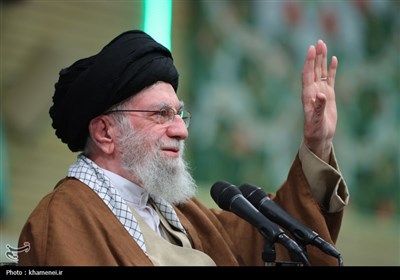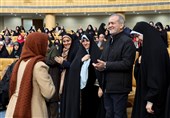Global Condemnation Mounts As Israel's Strikes on Lebanon Leave Nearly 500 Dead
TEHRAN (Tasnim) – Israel's recent airstrikes on southern and eastern Lebanon have left nearly 500 dead and over 1,600 injured, sparking widespread international outrage.
Global leaders and organizations are calling for immediate action to prevent further escalation.
Israel launched a series of airstrikes on Lebanon on Monday, killing at least 492 people, including 35 children, and injuring 1,645 others, according to Lebanon’s Health Ministry.
China’s Foreign Minister, Wang Yi, voiced strong support for Lebanon during a meeting with his Lebanese counterpart, Abdallah Bou Habib, in New York on Tuesday. He condemned the “indiscriminate attacks against civilians,” emphasizing China’s commitment to justice and solidarity with Lebanon. “Armed force does not represent truth, and might only undermine peace,” Wang stated.
The Arab League Council, meeting in conjunction with the 79th United Nations General Assembly, issued a strong condemnation of Israel's increasing aggression. "We express our readiness to support Lebanon in the face of these attacks while holding the Israeli regime accountable," the ministers said in a statement.
Turkey also criticized Israel's criminal acts, warning that the strikes could push the region deeper into chaos. "Israel's attacks on Lebanon mark a new phase in its efforts to drag the entire region into chaos," the Turkish Foreign Ministry said, accusing Israel’s allies of enabling violence for political gain.
France has called for an emergency UN Security Council meeting, with Foreign Minister Jean-Noel Barrot urging all parties to de-escalate tensions. “Immediate measures must be taken to prevent a regional conflict,” Barrot said.
European Union foreign policy chief Josep Borrell echoed these concerns, warning of the potential for an all-out war. "We are seeing more military strikes, more collateral damage, more victims,” Borrell said, calling for collective action.
Venezuelan President Nicolas Maduro, while meeting Brazil’s Landless Movement, condemned the strikes as "genocide," describing the conflict as a global battle against fascism.
Jordan’s King Abdullah II has reiterated his country’s “absolute support for Lebanon, its security, sovereignty, and the safety of its citizens in the face of Israel’s war on it.” In a conversation with Lebanon’s caretaker Prime Minister Najib Mikati on Monday, the Jordanian King stressed the risks posed by Israel’s escalating actions and called for immediate global intervention to prevent further regional conflict. He emphasized that the path to peace begins with an “immediate end to the war on Gaza.”
Belgium’s Deputy Prime Minister Petra de Sutter condemned Israel’s actions, describing them as “horrendous.” “492 lives lost in Lebanon. Over 1,600 injured. Tens of thousands were ordered to flee their homes in just one day,” de Sutter posted on X (formerly Twitter). “This horrendous attack by Israel won’t lead to any solution for the region. Only diplomacy will bring citizens home safely. Only a ceasefire will end the suffering,” she added.
Other nations, including Egypt, Syria, Qatar, and Iraq, have also condemned Israel’s agression, voicing their solidarity with Lebanon.
Lebanese Prime Minister Najib Mikati urged global powers to stop what he described as Israel’s “plan to destroy Lebanese villages and towns.” The attacks have triggered a mass exodus from southern Lebanon, with thousands fleeing to Beirut as Israel’s offensive continued into its deadliest day since the Gaza war began last October.
As a result of the strikes, residents from various villages in southern Lebanon shared images on social media showing their towns under attack, prompting thousands of people to flee toward Beirut. The mass evacuation caused heavy traffic jams on the main highway leading to the capital. In response, Lebanon has suspended educational activities at universities and schools, with many campuses set to serve as shelters for those seeking refuge.
Lebanon has suspended educational activities as schools and universities are being used as shelters for displaced residents. The country's healthcare system, already strained by recent explosions, is struggling to cope with the influx of injured civilians.






